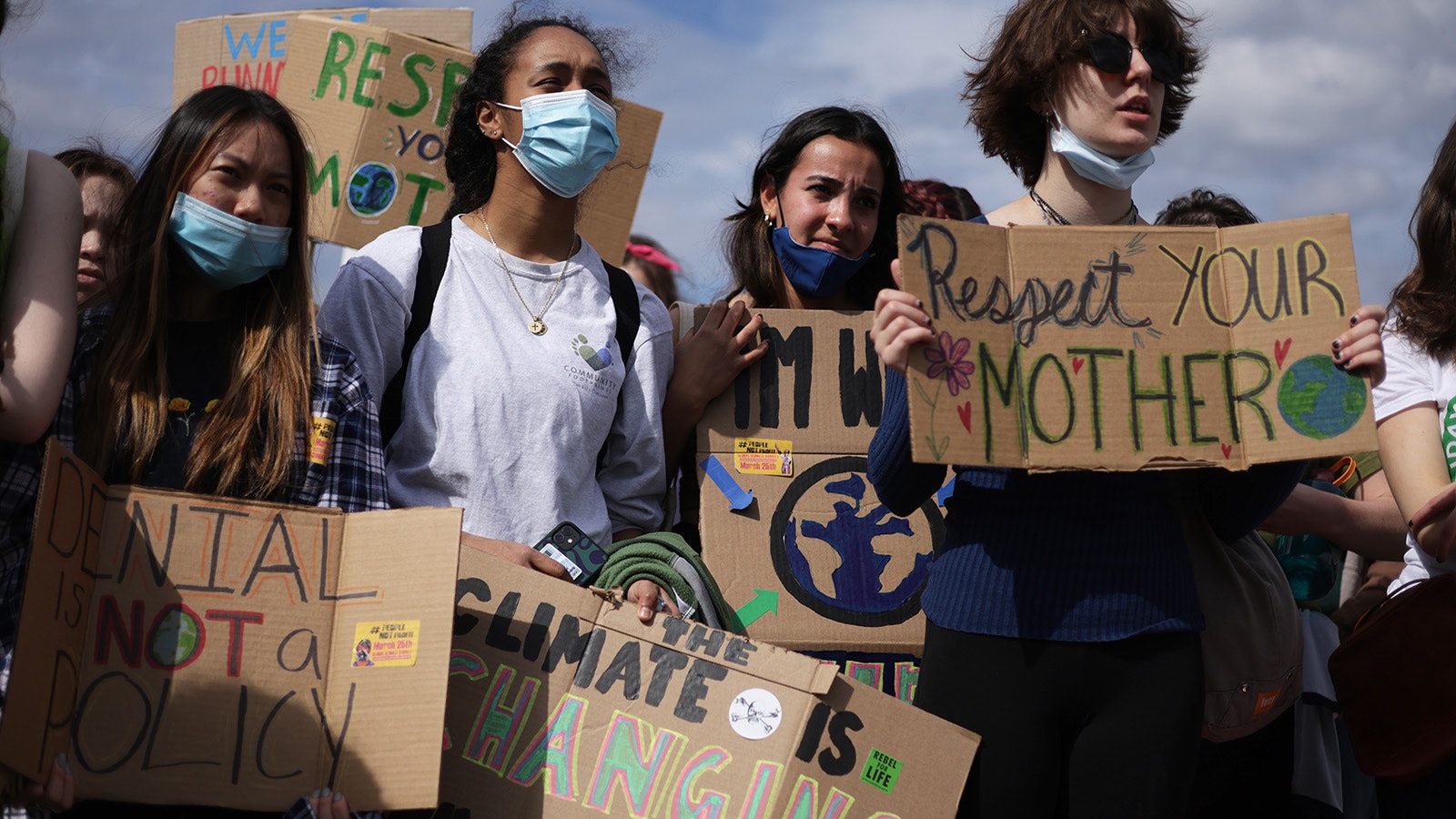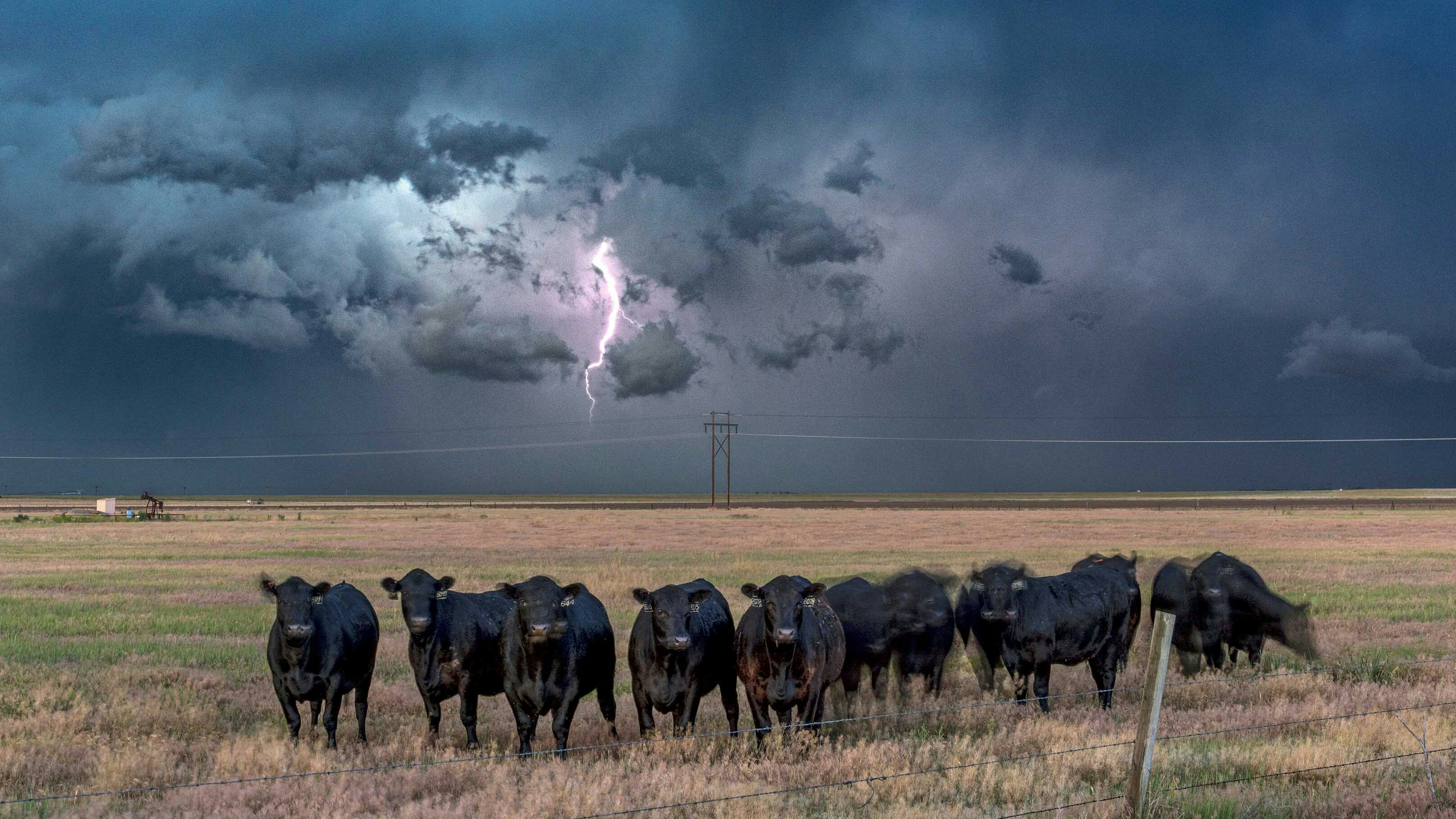The United Nations Intergovernmental Panel on Climate Change released its synthesis report this week, summarizing nine years of research by the world’s leading climate scientists.
The report has enormous influence over the world’s energy policy makers and will likely inspire further calls to eliminate fossil fuel use as quickly as possible.
Stark Warning
The report has been making headlines this week with dire warnings that something must be done about climate change.
The Associated Press story was headlined “World on ‘Thin Ice’ As UN Climate Report Gives Stark Warning.”
It’s the same take as a generation ago when in a June 1989 article, the Associated Press reported a senior U.N. environmental official was saying that entire nations could be entirely destroyed by rising sea levels by the year 2000 if the global warming trend wasn’t reversed.
Dr. Matt Wielicki, an Earth scientist and assistant professor in the Department of Geological Sciences at the University of Alabama, told Cowboy State Daily the language about death and destruction in these summary reports is often different from what’s actually in the research they’re summarizing.
The report authors ratchet up the disaster rhetoric, which in turn draws more attention.
He said there’s a couple of reasons for this. One is that the planet overall isn’t seeing a decrease in carbon dioxide emissions. While the West is adopting renewable energy and replacing coal generation with natural gas, China and India are rapidly increasing their emissions as they strive to enjoy the economic development the West enjoys.
The second reason, Wielicki said, is that after years of predictions that nations would vanish as a result of climate change, people are less inclined to listen to the same warnings over decades of time.
“It’s a clear sign of frustration on their part,” Wielicki said.
Listen To Science
Dr. Gerald Kutney, author of “Carbon Politics and the Failure of the Kyoto Protocol,” which gives an overview of the IPCC process and the international politics of climate change, said the summary reaffirms a crisis that the world’s leading scientists have been warning about since the 1990s, and those warnings shouldn’t be dismissed.
“What’s happened is science … has been yelling for years, ‘People wake up! We have to react to this!’ This is what the science is telling us,” Kutney said, adding that critics of the report are just sharing opinions.
“Science doesn’t care about their opinion. To me, what’s their opinion worth? Absolutely nothing,” Kutney said.
Kutney said there’s a difference between denying science and being skeptical of it.
Skepticism, he said, is a fundamental principle of science. The difference is that “science deniers,” as he calls them, ignore the wider body of evidence to formulate opinions.
Liveable Future
Dr. Roger Pielke, professor of environmental studies at the University of Colorado at Boulder, criticized the report as, more than ever, containing politicized language that is lacking in scientific value.
On a Substack post explaining his objections, Pielke pointed to the headline of the press statement that accompanied the release of the report.
“Urgent climate action can secure a liveable future for all,” the headline reads.
Peilke called this a “generic and empty political exhortation that is all-so-common in climate advocacy.”
The phrase “livable future” is not a scientific term that’s not defined anywhere in the IPCC literature, Pielke said.
Politicized Science
Pielke said the report also downplays research showing that extreme scenarios are increasingly implausible.
It skirts around the relevant scientific research on this topic, only mentioning in a footnote that it exists, he said.
The IPCC report also lacks policy specifics, Pielke wrote, other than a mention in the press release about walking, cycling and using public transport. It makes no mention of nuclear energy or the reductions in carbon dioxide that can be realized from increased use of natural gas over coal.
Pielke showed how the IPCC summary also ignored studies that employ normalization methods to calculations of loss and damage.
In his research, Pielke adjusts costs of damages from natural disasters over time with changes in wealth over time. For example, a hurricane hitting Miami Beach today would cause far more damage than a storm of equal intensity hitting the beach in 1920 because there’s a lot more wealth impacted in the area now.
Based on this normalization method, Pielke’s peer-reviewed research shows there’s a declining trend in economic losses from climate-related natural disasters. Pielke has stated this shows that economic losses are not a good measurement for changes in storm intensity.
The IPCC summary released this week, Pielke wrote, ignores studies that employ this normalization method, except one.
The report, though, uses damages as an argument for urgent action to reduce emissions.
Putting Everyone At Risk
Kutney said he doesn’t understand what Pielke is trying to do when he raises these kinds of issues with how the IPCC presents research on climate change.
“The only thing these scientists want is for politicians to wake up and do something about a crisis that’s here today and is going to get worse tomorrow,” Kutney said.
Kutney is critical of skeptics who claim that adaptation to changes in the climate are a more cost-effective approach to the problem than mitigating carbon dioxide emissions.
“That … is one of the silliest comments I’ve ever heard in my life, because you adapt forever. If this is going to keep on getting worse, then the problem is diminishing returns,” Kutney said.
Kutney said these kinds of arguments and disputes over the IPCC reports are a threat to everyone.
“They’re putting everyone at risk. They’re putting you and your family at risk. They’re putting every single person in Wyoming at risk,” Kutney said.
Fearmongering
On his “Where is the Climate Emergency” podcast this week, Wielicki went through the IPCC report’s highlights.
He explained that the climate has always been changing. In geologic history, there were periods when the Earth was warmer and carbon dioxide levels in the atmosphere were much higher.
Wielicki criticized the report for dismissing positive benefits of global warming. Increases in the amount of carbon dioxide in the atmosphere are benefiting plant growth, a global greening effect that NASA has confirmed.
A warming world, Wielicki explained, is a wetter one. The increased moisture also benefits plant growth and agriculture.
“We have seen record yields in crops. The claim by climate alarmists is that those crop yields have plateaued. It’s true that the increase in crop yields has slowed, but again, it is still increasing,” Wielicki said.
The report doesn’t discuss how warming temperatures have decreased the number of extreme cold events, which studies show kill more people than heat waves. Though deaths from heat waves are up, deaths from extreme cold are down. On the whole, fewer people are dying in extreme temperature events.
The report also makes no mention of the fact that, according to the International Disaster Database, deaths from climate-related natural disasters are down 98% since 1920, despite the world’s population increasing four-fold in that time.
“They’re using fear as a way to push their message and their narrative. And they do this in order to change policy and to gain money and power,” Wielicki said.





